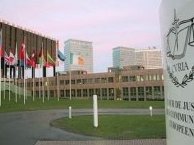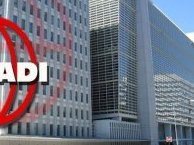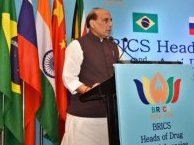investment | BITs

UNCTAD | 21-Jun-2017
International investment agreement (IIA) reform has made significant progress.

The Hindu | 2-Jun-2017
‘IIA, which has a pro-investor bias, aims to protect only capital and not labour,’ said Saurabh Garg, the Joint Secretary in Indian Finance Ministry’s Department of Economic Affairs.

Kluwer Arbitration Blog | 1-Jun-2017
One thing is clear: the European Commission did not obtain the full exclusive competence which it was hoping.

El País | 29-May-2017
El diputado socialista Roberto Chiazzaro expuso en Ecuador sobre los tratados bilaterales de inversión y los "elevados" riesgos que asumen los países cuando proceden a su firma.

CELAG | 29-May-2017
La eliminación de las obligaciones inaceptables que representa el CIADI es imprescindible para un país que quiera avanzar en el control soberano y democrático de las actividades empresariales multinacionales en aras del desarrollo socioeconómico y el respeto a los derechos humanos.

South Centre | 24-May-2017
The withdrawal of Ecuador from these BITs responds to the final stage of a review process that started in 2008, and which had led to the establishment of a joint government-civil society audit commission.

PACS | 19-May-2017
The BRICS Group was born in the century XXI with renewed expectations of changes in the world order through greater participation of the Global South. However, what we have witnessed so far is the consolidation of a new/old unequal world order.

EJIL: Talk! | 16-May-2017
The treaty is an important attempt by two developing countries to move toward a new generation of BITs fully aligned with the evolution of international law.
keywords:
alternatives ,
investment | BITs ,
investor-state disputes | ISDS ,
Morocco ,
Nigeria ,
reformed ISDS

EJIL: Talk! | 15-May-2017
While the debate on the treaty regulating business impact on human rights is likely to continue for a while longer, some recent developments in international investment law seem to be moving forward on international human rights law obligations for businesses
keywords:
alternatives ,
Argentina ,
human rights ,
investment | BITs ,
investor-state disputes | ISDS ,
Morocco ,
Nigeria ,
reformed ISDS

Lexology | 15-May-2017
While India and Indonesia may have withdrawn from existing BITs, this does not necessarily leave foreign investors without any protection.


